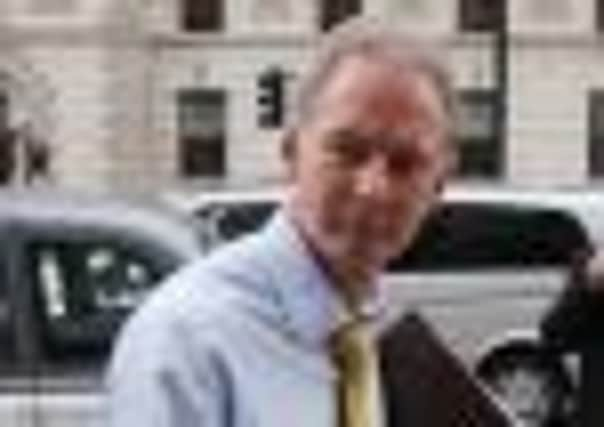MPs grill senior police officers in hacking row


The chairman of the Home Affairs Select Committee, Keith Vaz, told Assistant Commissioner John Yates of the Metropolitan Police his evidence was “unconvincing” after the policeman said he did not plan to resign over his handling of the inquiry.
Mr Yates expressed regret at his decision in 2009 that there was no need to reopen the phone-hacking investigation but insisted he had always told the truth to the committee and suggested that the News of the World “failed to co-operate” with police until the start of this year.
Advertisement
Hide AdAdvertisement
Hide AdMr Yates said he had “never, ever, ever” received payment from journalists for information but admitted it was “highly probable” some of his officers did.


He strongly denied allegations in the New York Times that he was put under pressure not to investigate phone hacking at the News of the World because of fears the tabloid would publish details about his personal life.
Mr Yates was last night given a vote of confidence by Metropolitan Police Commissioner Sir Paul Stephenson, who praised him for his “courage and humility” in facing the committee.
Former assistant commissioner Andy Hayman, who was in ultimate charge of the 2006 phone hacking investigation and later went on to become a columnist with News International paper The Times, rejected suggestions he was in the company’s “back pocket”.
Advertisement
Hide AdAdvertisement
Hide AdHe confirmed he had had private dinners with News of the World representatives during the hacking inquiry but said they had always been “businesslike” and taken place in the presence of the Met’s head of communications.


“Any suggestion that these were cosy, candle-lit affairs where state secrets were discussed is rubbish,” he said.
Mr Hayman said as far as he could recall he did not raise the issue of News International’s failure to co-operate with detectives because he was not aware of it at that time.
Labour MP Mr Vaz told the former senior policeman that his approach appeared to be “like Clouseau rather than Columbo”.
Advertisement
Hide AdAdvertisement
Hide AdFormer Met deputy assistant commissioner Peter Clarke, who oversaw the original phone hacking investigation, told the MPs he could not justify the resources needed to trawl through the 11,000 pages of material seized during the inquiry. Instead a team of officers went through the documents to identify victims where there might be “security concerns”.
Mr Clarke admitted this strategy did not work and said it was “utterly regrettable” that crime victims whose phones were hacked did not receive the support they needed sooner.
He said his officers were met with “hostility and obstruction” when they went to the News of the World on the day the paper’s then-Royal editor Clive Goodman was arrested in August 2006.
He added: “If at any time News International had offered some meaningful co-operation instead of prevarication and what we now know to be lies, we would not be here today.”
Advertisement
Hide AdAdvertisement
Hide AdDeputy Assistant Commissioner Sue Akers, who is leading the new phone hacking inquiry, admitted there was an “awful lot to do” after revealing police had compiled a list of more than 12,000 names and numbers.
Mr Yates also told MPs he was “99 per cent certain” his phone was hacked while former Met commissioner Lord Blair said his home and mobile telephone numbers were found on lists obtained by detectives investigating the News of the World.